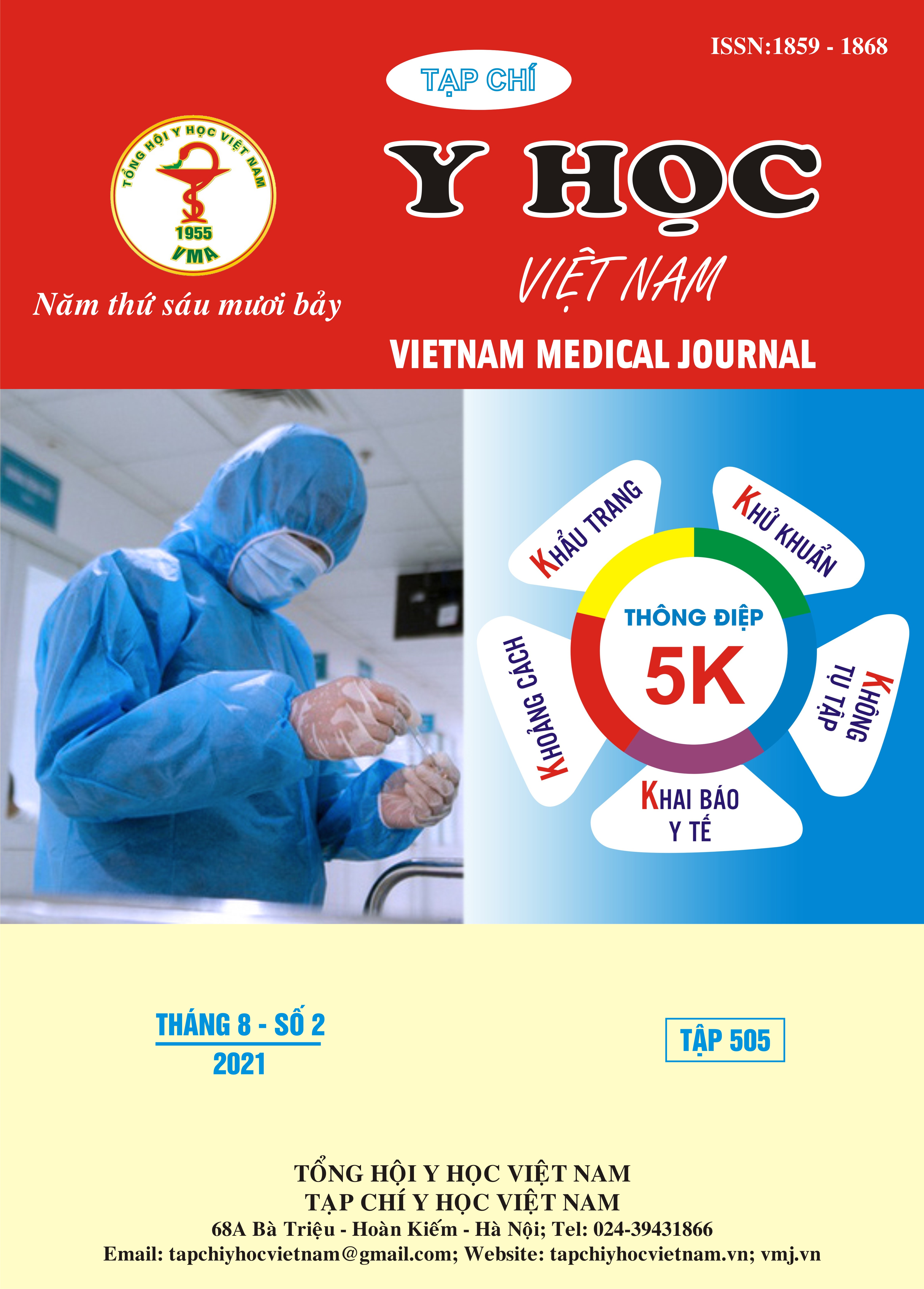TREATMENT EFFICACY OF BORTEZOMIB, CYCLOPHOSPHAMIDE AND DEXAMETHASONE (VCD) REGIMENS IN MULTIPLE MYELOMA PATIENTS WITH RENAL IMPAIRMENT
Main Article Content
Abstract
Background: Multiple myeloma is a common hematologic malignancy, causing multiple organ dysfunction. Kidney injury is one of the most common complications of multiple myeloma. Current guidelines recommended the VCD regimen (bortezomib, cyclophosphamide and dexamethasone) as the preferred regimen for patients with multiple myeloma and renal impairment. In Vietnam, there are few studies on this context. Objective: To evaluate the treatment efficacy of bortezomib, cyclophosphamide and dexamethasone (VCD) regimens in newly diagnosed multiple myeloma patients with renal impairment. Materials and Methods: A retrospective descriptive study had been conducted at the Department of Hematology, Cho Ray Hospital during the period from 2015 to 2020. Study population included patients who were aged of 18 years and older, newly diagnosed with multiple myeloma, had serum creatinine level greater than 2 mg/dL or decreased glomerular filtration rate eGFR < 60 mL/min/1.73 m2. These patients were treated with regimen of bortezomib, cyclophosphamide, and dexamethasone (VCD). Results: We collected 40 patients with age 53.4 ± 9.5 years old, male accounted for 77.5%, serum creatinine level was 4.6 ± 3.2 mg/dL. After chemotherapy with 4 cycles of VCD regimen, 77% of patients achieved partial remission response or better (³ PR), of which very good partial remission (VGPR) was 27%. The overall renal response rate was 85%, of which 57% had a complete response (CRrenal), 10% had a partial response (PRrenal) and 18% had a minimal response (MRrenal). There was a statistically significant positive correlation between renal response and remission response after chemotherapy with p = 0.002. Conclusion: Our study revealed that the VCD regimen was highly effective in both remission response and renal function improvement in newly diagnosed multiple myeloma patients with renal impairment.
Article Details
Keywords
bortezomib, cyclophosphamide, dexamethasone, multiple myeloma, renal impairment
References
2. Dimopoulos M.A. et al., "International Myeloma Working Group Recommendations for the Diagnosis and Management of Myeloma-Related Renal Impairment", Journal of Clinical Oncology, 2016, 34 (13), pp. 1544-1557.
3. Kumar S. et al., "Randomized, multicenter, phase 2 study (EVOLUTION) of combinations of bortezomib, dexamethasone, cyclophosphamide, and lenalidomide in previously untreated multiple myeloma", Blood, 2012, 119 (19), pp. 4375-4382.
4. Lum E.L. et al., "Kidney Transplantation in Patients With Active Multiple Myeloma: Case Reports", Transplantation direct, 2017, 3 (8), pp. e200-e200.
5. Rajkumar S.V. et al., "International Myeloma Working Group updated criteria for the diagnosis of multiple myeloma", Lancet Oncol, 2014, 15 (12), pp. e538-548.
6. Reeder C.B. et al., "Cyclophosphamide, bortezomib and dexamethasone induction for newly diagnosed multiple myeloma: high response rates in a phase II clinical trial", Leukemia, 2009, 23 (7), pp. 1337-1341.
7. Reule S. et al., "ESRD due to Multiple Myeloma in the United States, 2001-2010", Journal of the American Society of Nephrology: JASN, 2016, 27 (5), pp. 1487-1494.
8. Sarközi R. et al., "Bortezomib-Induced Survival Signals and Genes in Human Proximal Tubular Cells", Journal of Pharmacology and Experimental Therapeutics, 2008, 327 (3), pp. 645


